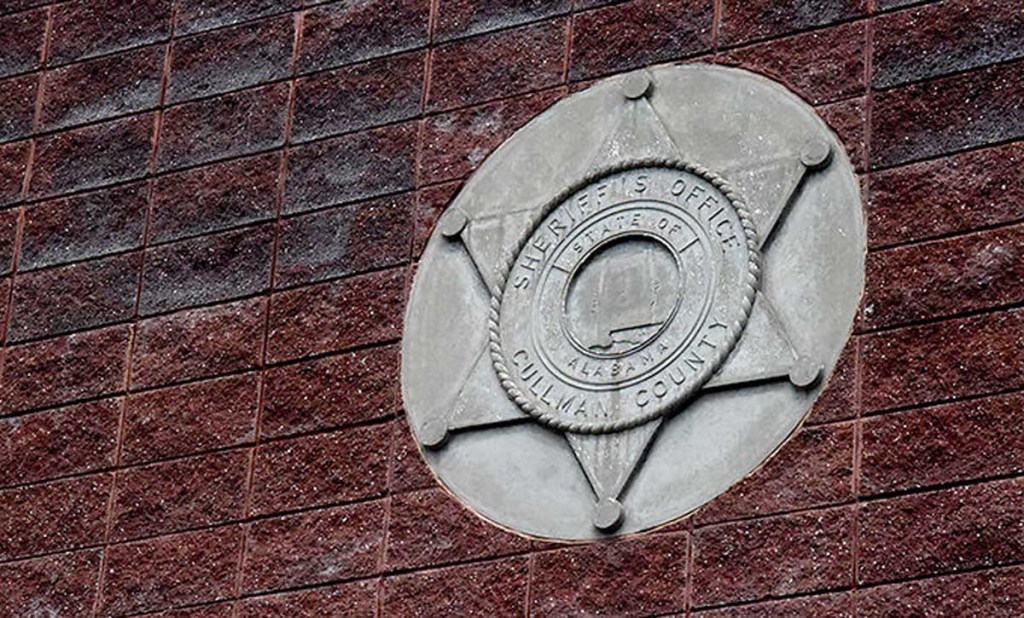13 early release inmates returning to Cullman
Published 12:00 am Wednesday, February 1, 2023

- Sheriff's Office Entrance
Nearly 400 Alabama inmates were released from prison months ahead of schedule on Tuesday, Jan. 31, after a 2021 sentencing reform went into effect. Thirteen of those inmates will be returning to Cullman County.
An amendment made to a 2015 prison reform law calls for inmates to be released and monitored by the Alabama Department of Pardons and Paroles anywhere from three months to a year ahead of their scheduled release date — depending on the length of their original sentence. The ADPP will supervise the released inmates and monitor their location via an electronic ankle bracelet. Alabama House Rep. Randall Shedd of Cullman said that he hoped that this supervision would offer inmates more opportunities to reintegrate into society upon their release and reduce the number of repeat offenders.
“The information we saw on this type of legislation showed that this would reduce repeat crime to where they would get out without any supervision and just commit more crimes and get back in. This system, from my understanding, gives them a better chance of not committing more crimes,” Shedd said.
An ongoing lawsuit against the state filed in 2020 by the Department of Justice claims that a 2016 investigation showed that in addition to overcrowding — according to the latest statistical report from the Alabama Department of Corrections the combined capacity of their facilities is 12,115 and are currently holding over twice that amount with nearly 26,000 inmates — the ADOC failed to provide safe conditions of confinement. Shedd said that this law will also help to satisfy the courts and prevent a federal takeover.
“My biggest legislative worry is that the federal courts would take over our prison system and have us mass release prisoners regardless of when they were going to get out like they’ve done in other states. I think this legislation helps us with the federal courts to hopefully prevent that,” Shedd said.
During the same session that the legislature approved this mass release, it voted in favor of using federal COVID-19 funds to construct additional prison facilities to combat the issue of overcrowding. The first of these facilities is not scheduled to be completed until 2026.
Rep. Corey Harbison of Cullman agreed that changes need to be made to reduce the issue of overcrowding in the Alabama state prison system, but said that those reforms should not be placed on the shoulders of taxpayers.
“My no vote was based on the fact that what this does … is it shifts the burden back to the taxpayers and the counties,” Harbison said.
Section 3 of the bill requires that the Alabama Director of Finance certify that there had been sufficient funds appropriated to the ADPP to cover any additional costs that the law would implement before it was allowed to go into effect. According to Alabama’s FY23 General Funds Appropriation Bill, $800,000 of the ADPP’s $90.5 million budget is to be used to fund the department’s Electronic Monitoring Program.
Harbison said that in addition to the financial cost, he is concerned this release can potentially place more of a strain on already overworked local law enforcement agencies.
“As a [former] deputy sheriff myself, I just feel like it’s going to impact law enforcement,” Harbison said. “If law enforcement are having to deal with them, that means that most of the time there’s a citizen somewhere in Alabama that is a victim of a crime that they committed.”
Earlier reports showed that five of the 369 inmates released would be returning to Cullman County, but the Cullman County Sheriff’s Office verified that the notice it received from the ADOC stated that there would be 13 inmates returning. Charges against those former inmates range from manufacturing of a controlled substance to more violent crimes such as attempted rape and murder. Only those convicted of sexual abuse of a child are ineligible for release. Those selected for early release were already set to be released without supervision as early as March.
Cullman County Sheriff Matt Gentry maintained his tough-on-crime stance and voiced his disapproval of this release in a statement sent to The Times.
“The role of the sheriff here in Cullman County is to protect the well-being and livelihood of our citizens,” he said. “One of the primary ways in which that is done is to remove violent criminals from the streets. Early release of these individuals is an injustice to society, and especially an injustice to the victims and their families.
“These are not petty crimes; most are violent felons. If someone is convicted of murder, rape, incest … there is only one place for that person, and that is prison.”
Requests to the ADOC for a complete list of charges of which inmates returning to Cullman were convicted were not returned by press time.





